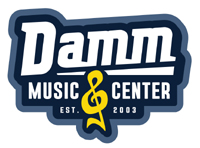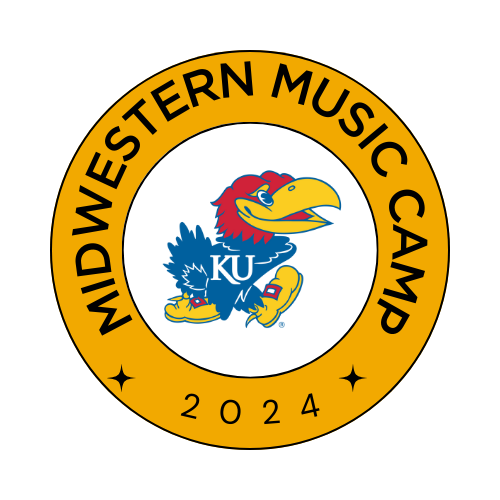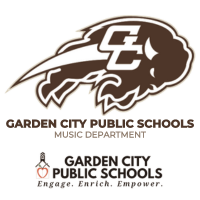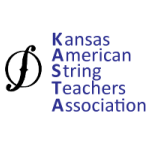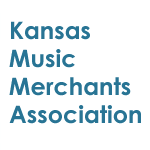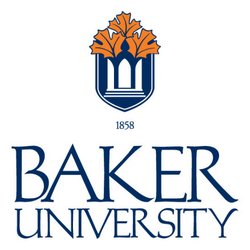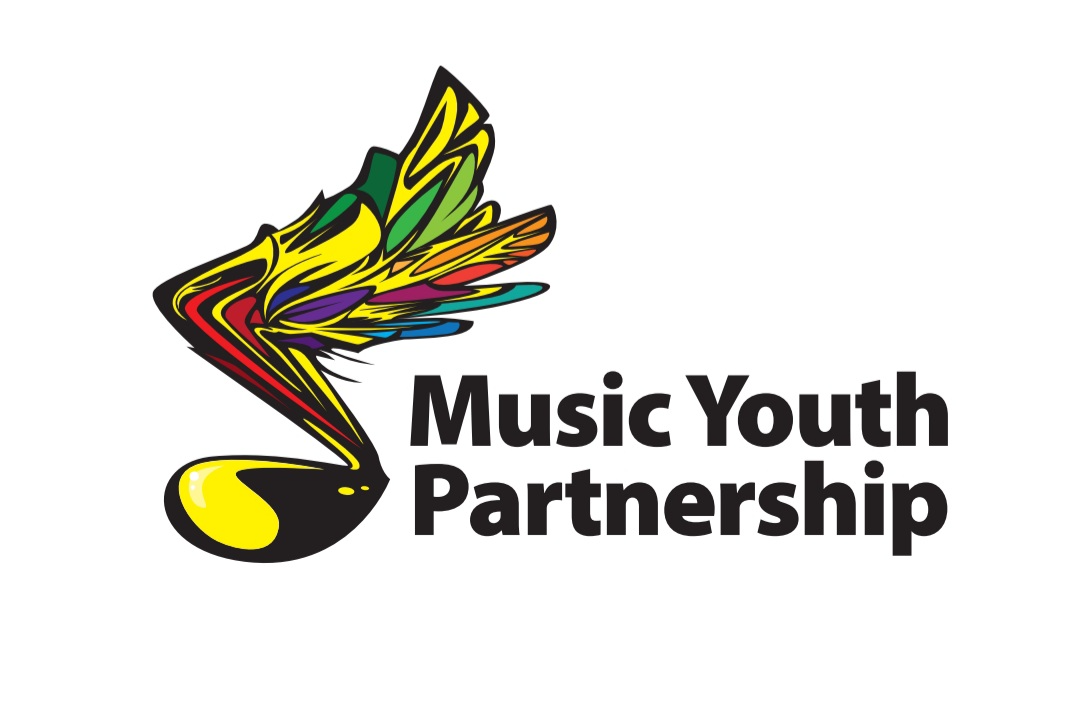Kansas is blessed with great music teachers from around the state who have a great deal of wisdom and advice they can share with peers. With experience, with specialized training in various areas, with shear hard work, and with an uncommon desire to continue to learn, they have honed their skills and made a great impact on their students. Therefore, we are asking teachers from around the state a new set of questions each month. It is our wish that this sharing of ideas will create a type of synergy among teachers throughout the state and elevate every program to new levels of learning.
This month’s topic was about planning for winter concerts. We asked teachers to discuss the issues they face in regard to students who miss concerts, students who can’t play Christmas music, and to suggest ideas for community outreach during the holiday season. The comments below are the replies we received from vocal, instrumental, and general music teachers from around the state.
Dwayne E. Dunn, Ph.D., Lawrence High School Choir Director
- What do you do with students who miss the concert? How do you develop the culture in which students don’t miss?
Of course, participating in a choral performance is essential to fully realize and experience the musical and aesthetic values of the discipline. Our ensembles are dependent upon the contribution of each member, and suffer when someone is missing. It impacts the experience of the other students in the ensemble as well, as they are now hearing a different choir in which they are attempting to blend and balance their voice. So I begin by speaking with students and parents about how important their contribution is in our concert performances. This is covered in detail in our choir handbook, during the first few days of class, at parent Open House, and in communication home just before performances.
Invariably, there are students who will miss a concert, whether for legitimate reasons (illness, death in the family, etc.) or other reasons. Since these co-curricular performances are an important grade for each quarter, students need to have an opportunity to make-up the points for this assignment. My make-up assignment includes two parts. Part one is a demonstration of a student’s preparation for the concert. If they have been attending rehearsals in preparation for the performance, hey should be able to perform their parts on the music we are performing. I can assess this by my observations of their contribution in rehearsals as we headed into the final rehearsals, or by having them come and sing some of their music for me. For Part two, I used to assign some sort of written assignment, usually asking for biographical information about one or more of the composers we were performing. In the last few years, I became less impressed by these assignments, which mostly consisted of students copying information from the internet and not really engaging in much learning. I have shifted to asking them for written responses to a series of questions about their music:
- What did the text mean to you? What things did the composer do to enhance the text?
- What kind of mood or atmosphere did the music and/or text suggest?
- What part of the song was your favorite and why?
- What parts did you struggle to sing well? Why do you think it was a struggle?
These types of questions (the above are just examples, I adjust the questions based on what literature we are singing) encourage the student to take a deeper look at the music and at their mastery of the piece, diagnosing what kinds of things gave them problems, and sharing the things they really liked. It is also more connected to the work we did in rehearsal and performance with these pieces. While I don’t think any written assignment is an equivalent substitute for missing a performance, I have found this type of writing provides me with more insight into how students interact with the pieces.
Katie Topp, Sabetha Director of Bands
2016 KBA Outstanding Young Band Director
- What do you do with kids who can’t do Christmas music?
I do have a couple students who cannot perform certain types of holiday/religious music, and I always try to program at least a couple pieces of music that can work around those restrictions. Often I’ve been able to find pieces of music that are festive-sounding or otherwise fit in well with the overtly holiday music; that way even though they may not be able to play everything, they can still play some of the pieces.
Jennifer J. Antonetti, Topeka Robinson Middle School
2015 KBA Outstanding Young Bandmaster
- What do you do with kids who can’t do Christmas music?
First of all, check your district’s policy on the use of religious music. Case law on this subject does not place an absolute ban on sacred music in school classrooms or performances but does stress the importance of balance and neutrality in music programming. Make sure that as you choose seasonal music, there is educational value in each piece, and that your educational purpose for choosing a piece of music is the predominant reason for making that choice. Religious music can be used in some instances if there is educational value in the piece of music, and it is not used to practice religion. Public school music directors can teach about various religions, but directors cannot teach, coerce, or mandate students to participate in any particular religion or religious practices. NAfME’s position statement suggests the following:
Religiously Neutral Programs
With this volatile topic, music educators should exercise caution and good judgment in selecting sacred music for study and programming for public performances. During the planning phase of each program, the following questions should assist the teacher in determining if the program is, indeed, religiously neutral:
- Is the music selected on the basis of its musical an educational value rather than its religious context?
- Does the teaching of music with sacred text focus on musical and artistic considerations?
- Are the traditions of different people shared and respected?
Is the role of sacred music one of neutrality, neither promoting nor inhibiting religious views? - Are all local and school policies regarding religious holidays and the use of sacred music observed?
- Is the use of sacred music and religious symbols or scenery avoided? Is performance in devotional settings avoided?
- Is there sensitivity to the various religious beliefs represented by the students and parents
Next, consider a December concert that is not centered around holidays or religious music at all. Or at the very least, have several selections for each of your groups that are not “holiday songs” or even seasonal in nature. I have had success with pieces that feature certain sections of the ensemble with my middle school band. Selections such as Sax to the Max by Michael Story or Superflutes! by Anne McGinty are very appropriate for this purpose. If a student cannot participate in rehearsing a particular song/piece due to a religious conflict, have that student work on a solo individually or do individual practice in a practice room for the time that the ensemble is rehearsing that particular selection. Try to limit excluding students from the ensemble and try to not spend the entire class period rehearsing the piece in which that student cannot participate.
Jane Vanderhoff, Garden City Choirs, retired
2014 KMEA Music Teacher of the Year
- What do you do with kids who can’t do Christmas music?
I make sure I have a variety of selections, most of which they can sing – I program the ones they can sing sequentially, so that if they need to enter or leave the stage it is inconspicuous. My experience has been that it only involves one choir, so it has been easy to balance out selections among the groups.
- What community outreach ideas do you have for December performances?
I stole this idea from Doris Prater, and it has become a tradition – all male community members older than high school age are invited to sing with our choir men; there are several evening rehearsals, then they join the massed high school men on stage at the Christmas concert on a few selections.
We also have had a junior show choir number involving elementary students. High school members lead a Saturday clinic session where a selection with simple choreography is taught. The “pee wee” show choir members join the high schoolers at the concert, complete with matching tee shirts.
- What do you do with students who miss the concert? How do you develop the culture in which students don’t miss?
A complete calendar of area performances is posted in the choir room, including school, church and community events. Students who miss concerts can go to any approved performance and write a review using complete sentences. They must make meaningful observations in the form of a critique, not just a listing of selections. A printed program should be included if available. It may be necessary to attend more than one outside concert to earn enough points to equal their missed performance. It must be completed within the grading period.
Eric Crawford, Wichita East High School, WPS Orchestra Curriculum Coach, KASTA Past President
- What do you do with kids who can’t do Christmas music?
It has been a few years since I’ve had a student object to performing, but in the past I have programed “winter” music instead of “Christmas” music. I used to do Sleigh Ride every year, and I had a student tell me that they couldn’t play Christmas music. I told her that Sleigh Ride was written during a heat wave in Boston in the summer of 1946, and that it originally had no lyrics. She seemed OK with that.
- What community outreach ideas do you have for December performances
I haven’t done it in a while, but I used to take a short tour of nursing homes in December, playing holiday music.
- What do you do with students who miss the concert? How do you develop the culture in which students don’t miss?
My principal asks that we have an alternative assignment for any student that misses a concert for an excused reason. Mine has been to write a biography about a composer. I do make them hand write it (at least two pages), so they aren’t tempted to download something. The only grade level that tends to have attendance issues is 9th. I explain that concerts are like our tests in orchestra, and it is pretty silly to put in all the work and miss the performance.
- Do you have any “Cool” Winter concert ideas (programming, advertising, integration, etc) that have been successful for you?
I have done a few things over the years. I like to have a string quartet play holiday prelude music in the lobby. I have also had all of my students memorize several simple carols, and come in and do a “surround-sound” around the audience. I’ve also incorporated some lighting design, ala TSO.
Nina Kindt, Wichita OK Elementary Music Teacher
- What do you do with kids who can’t do Christmas music?
Firstly, I do not regularly do a winter concert. When I do, I put the focus on WINTER, rather than holidays.
- What community outreach ideas do you have for December performances
Our school has a tradition of having the select choir of 4th & 5th graders go into the community for traditional Christmas Caroling. We sing out at the airport, a retirement home (taking caroling sheets so residents can sing with us), and outside local businesses as we make our way back to the school.
We also have an all-school carol sing-along the last day, last hour. We typically have a room with activities for any students who opt out (though usually, those students have already check out for the day by that time.)
- What do you do with students who miss the concert? How do you develop the culture in which students don’t miss?
I do not grade a student down if they miss a concert. My grade school students are at their parents mercy for getting to the school in the evening. We do a daytime performance for the rest of the school body, giving every child a chance to perform. I also have plenty of data from daily rehearsals and final rehearsal to give them an adequate grade. They also have a chance to evaluate the performance that is video-taped.
- Do you have any “Cool” Winter concert ideas (programming, advertising, integration, etc) that have been successful for you?
When I do have a winter concert, I try and have the 4th & 5th graders present it – letting them play lots of Orff arrangements to various instrumental pieces that are non-holiday themed. I will include a few holiday standards, but I don’t make it our focus, which avoids the holiday-participation dilemma. Students can sit out for the small number of songs that present a conflict, without missing out on the benefits of performing. As always, in such a situation, it is best to reach out to parents for clarification. Some parents will let their child play an instrument to Jingle Bells, though not sing. While some parents do not want their child in the room during Jingle Bells. I always give them my program list, and ask them what they would like the student to do during the songs they will not participate in.
Jason Sickel, Blue Valley North HS Choral Director
2017 Kansas Teacher of the Year
- What do you do with kids who can’t do Christmas music?
I think at the root of this question is knowing & understanding your school culture and the broader community in which you teach. Because my high school is culturally and religiously diverse, I have Jewish, Hindu, Muslim, Christian, and Zoroastrian students in my program. When you consider the spectrum of holidays celebrated by my students in December, it becomes clear that focusing only on Christmas music seems rather narrow and confined. I find that if I’m going to teach my students great literature, both secular and sacred, I should not be confined to selecting pieces that only fit a “Christmas theme.” You will find my December concert to be filled with repertoire that I have selected based on its educational and choral merit and nothing else. A typical December program for me will be filled with a variety of choral music from a variety of genres, time periods, cultures, and languages – just like any other concert during the school year. I have incorporated two traditions that patrons seem to appreciate. The grand finale consists of all choirs combining to sing Carol of the Bells and Ose Shalom (a Hebrew prayer for peace). I am always upfront and honest with my students. If they feel uncomfortable singing either of these two pieces they can communicate that with me and we will determine another option for them. I have yet to have any student approach me about this. It all comes back to knowing your community. If your parents expect Christmas music, I would encourage perhaps a balance of sacred and secular. Students who still can’t participate could be asked to serve as student adjudicators – serving as an extra set of ears to critique and offer feedback. These students can also serve as concert ushers, program designers, and stage crew assistants. I think involving them in the non-musical components still keeps them engaged and active.
Julie Linville, Andover Wheatland Elementary Music Teacher
- What do you do with kids who can’t do Christmas music?
In my district, formal elementary, middle school, and high school concerts are held in the auditorium of the high school we feed to so there are five schools needing to schedule performances. While Christmas is deeply important to me on a personal level, I have a building of students from a variety of faith backgrounds. For these two reasons, I choose to program concerts at other times of the year unrelated to any holiday. This also keeps us from singing Christmas music in October. I use my classroom to expose my students to sacred and secular music as well as music from those other faith backgrounds.
- What do you do with students who miss the concert? How do you develop the culture in which students don’t miss?
Missing concerts is a tricky subject and has a different impact at various educational levels. At the elementary level, a student’s ability to attend is out of their control and I don’t feel I can assign a consequence to them.
Knowing that some students will never have an opportunity to perform on stage after elementary school, I provide all students (except kindergarten) an opportunity to have a special speaking or singing part on each concert. Although they are very short, the students own them and are very proud of their accomplishments once they have performed. I believe this also helps with attendance. On the occasion that I have students saying their parents won’t let them come, I send a note or make a phone call to the parent to make a personal appeal. With parents of some ESOL students, their language skills are less proficient than their children and it may simply be a matter of not understanding the information sent home.





